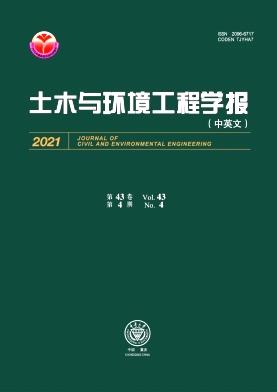Improving of Temperature Susceptibility of Asphalt 60/70 using Synthesized Reactive Rubber Nanoparticles for use in Different Climate
Q2 Engineering
Tumu yu Huanjing Gongcheng Xuebao/Journal of Civil and Environmental Engineering
Pub Date : 2017-10-09
DOI:10.4172/2165-784X.1000285
引用次数: 2
Abstract
The use of reactive polymers as modifiers for asphalt appears promising. Asphalt penetration grade 60/70 cannot be used in coating applications for its long drying time at ordinary temperature and for its brittleness at very cold temperature. This material is very cheap as compared to blown asphalt that usually used in industrial applications. This study aims to use reactive polymers in modification of soft asphalt to produce very specific asphaltic material for use in infrastructure applications especially coating instead of highly expensive materials. The new asphaltic material is low cost and has high quality performance at low temperature. To achieve the aim of study, RRNP was used as additive to modify asphalt in percentages of 3, 5, 7 and 10% w/w. The prepared RRNP was then tested for their particles size using DLS and TEM, SEM, 1HNMR. RRNP was used to modify the thermo mechanical properties of asphalt via forming chemical bond, and the changing in mechanical and thermal properties of the mixes as well as the storage stability were studied. Also, the morphology (SEM), thermal characterization (TGA), Dynamic mechanical analysis (DMA), rheological tests, while, the prepared coatings were applied to carbon steel panel and tested for bending, Abarsion test and impact test were detected. Overall, the results show that the chosen modifiers are the best so far in the modification of soft asphalt to suit the industrial applications in different climate conditions.合成反应性纳米橡胶改善不同气候条件下沥青60/70的温度敏感性
反应性聚合物作为沥青改性剂的应用前景广阔。60/70级渗透沥青在常温下干燥时间长,在低温下易碎,不能用于涂料。与通常用于工业应用的吹制沥青相比,这种材料非常便宜。本研究旨在利用反应性聚合物对软沥青进行改性,以生产用于基础设施应用的非常特殊的沥青材料,特别是涂料,而不是昂贵的材料。该新型沥青材料成本低,低温性能好。为了达到研究目的,将RRNP作为添加剂,分别以3%、5%、7%和10% w/w的比例对沥青进行改性。然后用DLS、TEM、SEM、1HNMR对制备的rnp进行粒径测试。用RRNP通过形成化学键改变沥青的热力学性能,研究了混合料的力学性能和热性能的变化以及储存稳定性。对制备的涂层进行了形貌(SEM)、热特性(TGA)、动态力学分析(DMA)和流变学测试,并将其应用于碳钢板上,进行了弯曲、磨蚀和冲击试验。结果表明,所选用的改性剂是目前软沥青改性效果最好的,能够适应不同气候条件下的工业应用。
本文章由计算机程序翻译,如有差异,请以英文原文为准。
求助全文
约1分钟内获得全文
求助全文
来源期刊

Tumu yu Huanjing Gongcheng Xuebao/Journal of Civil and Environmental Engineering
Engineering-Architecture
CiteScore
1.30
自引率
0.00%
发文量
5346
 求助内容:
求助内容: 应助结果提醒方式:
应助结果提醒方式:


